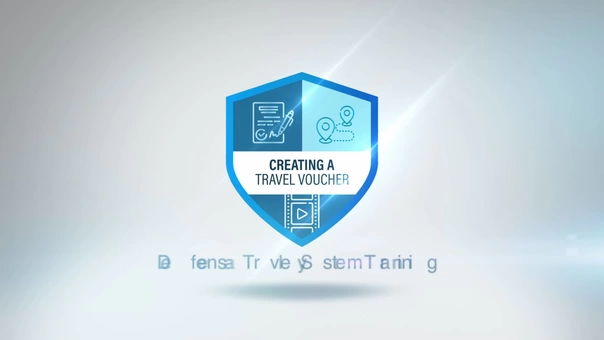
Navigating the Defense Travel System (DTS)
If you’ve ever had to book a trip using the Defense Travel System (DTS), you know it can be an experience filled with frustration, confusion, and a few choice words. Whether you’re a seasoned pro or a newbie trying to figure out why your authorization keeps getting rejected, this guide is for you.
Let’s break down DTS in plain English and help you navigate the system with fewer headaches.
What Is DTS, and Why Does It Exist?
DTS is the online travel booking and reimbursement system used by the Department of Defense (DoD). It’s designed to help military personnel and civilian employees book travel arrangements, track expenses, and get reimbursed for duty-related trips. Sounds simple, right? Well, anyone who has actually used it knows that “simple” isn’t the first word that comes to mind when dealing with DTS.
The system was created to streamline the travel process and eliminate paperwork. Instead of manually filling out a mountain of forms, DTS automates approvals, bookings, and payments. While the intention was good, the execution… let’s just say it’s a work in progress.
First Things First: Setting Up DTS
Before you even think about booking a flight, you need access to DTS. Here’s what you need to do:
- Get a DTS Account – Your unit’s Defense Travel Administrator (DTA) will set up your profile and grant you access.
- CAC (Common Access Card) Required – You’ll need a CAC and a computer with a CAC reader to log in. If your CAC reader isn’t working, welcome to your first DTS-induced headache.
- Training (Unfortunately, Yes) – DTS isn’t the most intuitive system, so taking the required DTS training courses (found on the TraX platform) is actually a good idea.
Booking Your Travel in DTS: A Survival Guide
Once you’re in, it’s time to book your trip. Here’s a step-by-step breakdown:
1. Create an Authorization
Before you go anywhere, DTS needs to approve your trip. You’ll enter the purpose of your travel, dates, locations, and estimated costs. Your command will review and approve (or reject) the request.
2. Booking Flights
DTS connects with the Government Travel System (GTS) to show available flights. Pro tip: DTS doesn’t always pick the most logical route, so double-check your options before booking. If you need a specific flight, you may have to justify it.
3. Reserving Lodging
You’re required to stay in DoD-approved lodging if available. DTS will show available options, but if you need to book off-base, you’ll need an exemption.
4. Rental Cars
DTS will allow you to book a rental car if authorized. Just remember that government rates are often cheaper, and you must use an approved provider.
5. Per Diem and Expenses
DTS automatically calculates your per diem (daily allowance for meals and lodging). If you end up spending more, you’ll need receipts for reimbursement.
The Dreaded Voucher Process (a.k.a. Getting Your Money Back)
After your trip, you have to submit a travel voucher to get reimbursed. This is where a lot of people run into problems. Follow these steps to make it as smooth as possible:
- Log in and Open the Voucher – Find your completed authorization and create a voucher.
- Upload Receipts – Any expense over $75 requires a receipt. If you forget to keep them, you’re out of luck.
- Double-Check Everything – DTS is picky. If there’s a discrepancy between your authorization and your voucher, expect delays.
- Submit for Approval – Your voucher will go through several layers of review before final approval.
- Wait for Payment – Once approved, your reimbursement should hit your bank account within a few days (but don’t be surprised if it takes longer).
Common DTS Issues (And How to Fix Them)
If DTS were flawless, this section wouldn’t be necessary. Unfortunately, it’s notorious for random errors and bureaucratic roadblocks. Here are some common problems and fixes:
Problem: Authorization Keeps Getting Rejected
Solution: Check if your LOA (Line of Accounting) is correctly assigned and ensure all required approvals are in place.
Problem: Flight/Lodging Options Are Limited or Missing
Solution: DTS doesn’t always show the best options. Call your Commercial Travel Office (CTO) for help.
Problem: Per Diem Rates Seem Off
Solution: Check the official Per Diem Rates website to verify, then update DTS manually if needed.
Problem: Voucher Is Stuck in Review
Solution: Follow up with your approving official. DTS won’t tell you when it’s held up, so be proactive.
Pro Tips for Mastering DTS
- Plan Ahead: DTS can be unpredictable. Give yourself extra time to process approvals and bookings.
- Save Every Receipt: Even if you think you won’t need it, keep a copy.
- Check Your Email: DTS notifications can go to spam, so check regularly.
- Use a DTS Expert: Every unit has a DTS guru—find them and get help when needed.
- Know the Help Desk: If all else fails, DTS Help Desk (1-888-Help1Go) is your last resort.
Final Thoughts
DTS is a necessary evil. While it’s not the smoothest system, knowing the ins and outs can make your experience less painful. With patience, planning, and a little bit of luck, you can navigate DTS like a pro and avoid unnecessary travel drama.
Have your own DTS horror stories or tips?












